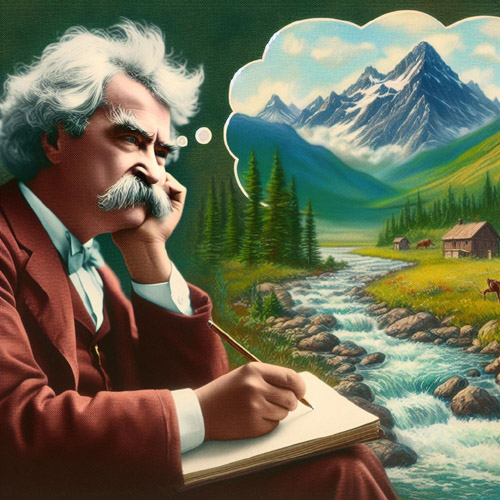
AI image created by R. Kent Rasmussen |
Within the last eight or ten years I have made several attempts to do the
autobiography in one way or another with a pen, but the result was not satisfactory,
it was too literary. With the pen in one's hand, narrative is a difficult
art; narrative should flow as flows the brook down through the hills and
the leafy woodlands, its course changed by every boulder it comes across
and by every grass-clad gravelly spur that projects into its path; its surface
broken, but its course not stayed by rocks and gravel on the bottom in the
shoal places; a brook that never goes straight for a minute, but goes, and
goes briskly, sometimes ungrammatically, and sometimes fetching a horseshoe
three quarters of a mile around, and at the end of the circuit flowing within
a yard of the path it traversed an hour before; but always going, and always
following at least one law, always loyal to that law, the law of the narrative,
which has no law.
With a pen in hand the narrative stream is a canal; it moves slowly, smoothly,
decorously, sleepily, it has no blemish except that it is all blemish. It
is too literary, too prim, too nice; the gait and style and movement are
not suited to narrative. That canal stream is always reflecting; it is its
nature, it can't help it. Its slick shiny surface is interested in everything
it passes along the banks--cows, foliage, flowers, everything. And so it
wastes a lot of time in reflections.
- Autobiography of Mark Twain, Volume 1 (2010) |

